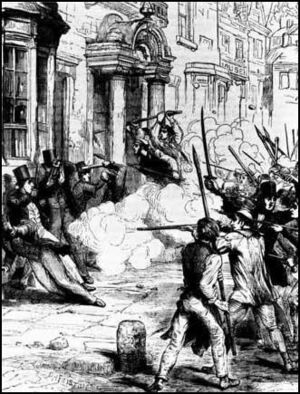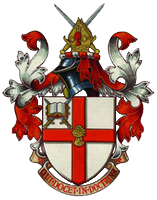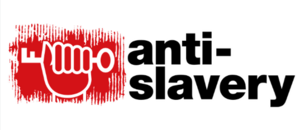1839
Jump to navigation
Jump to search
1829 < 1830 < 1831 < 1832 < 1833 < 1834 < 1835 <1836 < 1837 < 1838 < 1839 > 1840 > 1841 > 1842 > 1843 > 1844 > 1845 > 1846 > 1847 > 1848 > 1849
 November 4 – Newport Rising |
Events
- January 9 – The French Academy of Sciences announces the daguerreotype photography process.
- January 19 – British forces capture Aden.
- March 9 – The Anti-Corn Law League is founded in Manchester, England.
- April 9 – The world's first commercial electric telegraph line comes into operation, alongside the Great Western Railway line in England, from London Paddington station to West Drayton.
- April 19 – The Treaty of London establishes Belgium as a kingdom, with its independence and neutrality guaranteed by the great powers of Europe.
- May 7 – The Bedchamber Crisis begins in the United Kingdom, after Prime Minister Lord Melbourne announces his resignation. [1] Queen Victoria asks several MPs to form a new government, and they insist on the condition that the Queen dismiss several of her personal attendants, the ladies of the bedchamber, for political reasons.
- May 12 – Socialist activist Louis Auguste Blanqui and the Société des Saisons begin an uprising against the government of France. The insurrection is suppressed, but not before 50 people are killed and 190 wounded. Blanqui is imprisoned until 1848. [2]
- May 22 – Former British statesman Lord Durham, as President of the New Zealand Company, formally asks the British government for permission to colonize New Zealand, and to establish a colonial government under the sovereignty of the United Kingdom. [3]
- June 3 – Destruction of opium at Humen begins, casus belli for Britain to open the 3-year First Opium War against Qing Dynasty China. A rapid rise in the sale of opium in China to over 40,000 chests (~56,000 kilograms (123,000 lb)) per annum results. [4] has caused the Chinese government to dispatch scholar-official Lin Zexu to Guangzhou to deal with the growing problem of opium addiction.
- June 22 – Louis Daguerre receives a patent for his camera (commercially available by September at the price of 400 francs).
- July 23 – First Anglo-Afghan War – Battle of Ghazni: British forces capture the fortress city of Ghazni, Afghanistan.
- August 31 – The First Carlist War (Spain) ends with the Convenio de Vergara, also known as the Abrazo de Vergara ("the embrace in Vergara"; Bergara in Basque), between liberal general Baldomero Espartero, Count of Luchana and Carlist General Rafael Maroto.
- September 4 – Battle of Kowloon: British vessels open fire on Chinese war junks enforcing a food sales embargo on the British community in China in the first armed conflict of the First Opium War.
- November 4 – Newport Rising: Between 5,000 and 10,000 Chartist sympathisers march on Newport, Monmouthshire, to liberate Chartist prisoners; around 22 are killed when troops fire on the crowd.[5] This is the last large-scale armed civil rebellion against authority in mainland Britain and sees the most deaths.
- November 27 – The American Statistical Association is founded in Boston, Massachusetts.
- December 6 – The Whig Party (United States), at its first ever national convention, in Harrisburg, Pennsylvania, nominates former U.S. Army General William Henry Harrison to be its candidate for President of the United States in the 1840 election. Although Senator Henry Clay of Kentucky has received 103 of the 128 necessary votes on the first ballot, he obtains only 90 on the final vote, while Harrison gets 148. Former U.S. Senator John Tyler is unanimously nominated for vice president.
Date unknown
- In the United States, the first state law permitting women to own property is passed in Jackson, Mississippi.
- The United Kingdom of Great Britain and Ireland, backed by the Russian Empire and the Austrian Empire, compels July Monarchy France to abandon Muhammad Ali of Egypt, and forces him to return Syria and Arabia to the Ottoman Empire.
- Tanzimat starts in the Ottoman Empire.
- Michael Faraday publishes "Experimental Researches in Electricity", clarifying the true nature of electricity.
- Charles Goodyear vulcanizes rubber.
- Valley Falls Company, as predecessor of Berkshire Hathaway, a conglomerate and holdings business in United States, was founded in Rhode Island.
Event
| Event | Start | End |
|---|---|---|
| Pax Brittanica | 1815 | 1915 |
New Groups
| Group | Image | Type | Description |
|---|---|---|---|
| Schibsted |  | ||
| Boston University |  | Private – Research | Big Boston university |
| Mount Allison University |  | A total of 55 Rhodes Scholarships, the highest per capita of any Canadian university. | |
| University of Chester |  | The University has worked with the Integrity Initiative. | |
| University of Missouri |  | Public Flagship State university Land-grant | Missouri's largest university |
| Anti-Slavery International |  |
A Death
| Title | Born | Died | Place of death |
|---|---|---|---|
| William Bentinck | 14 September 1774 | 17 June 1839 | France Paris |
Births
| Title | Born | Place of birth | Died | Summary | Description |
|---|---|---|---|---|---|
| John D. Rockefeller | 8 July 1839 | New York Richford | 23 May 1937 | Businessperson | Co-founder of the massively influential Standard Oil Company, and patriarch of the Rockefeller family which played a central role in the US deep state for more than a century. |
| Henry George | 2 September 1839 | US Pennsylvania Philadelphia | 29 October 1897 | Author Activist |
Many thanks to our Patrons who cover ~2/3 of our hosting bill. Please join them if you can.
References
- ↑ Mark Hovell, The Chartist Movement (Manchester University Press, 1966) p143
- ↑ Jill Harsin, Barricades: The War of the Streets in Revolutionary Paris, 1830-1848 (Palgrave Macmillan, 2002) p124
- ↑ T. Lindsay Buick, The French at Akaroa: An Adventure in Colonization (Cambridge University Press, 1928)(reprinted 2011) p294
- ↑ https://books.google.com/books?id=QNo8AAAAIAAJ quote=expansion in imports from 16,550 chests in the season 1831-2 to over 30,000 in 1835-6, and 40,000 in 1838-9}}
- ↑ https://web.archive.org/web/20070926235009/http://www.nationalarchives.gov.uk/pathways/citizenship/struggle_democracy/lovell.htm